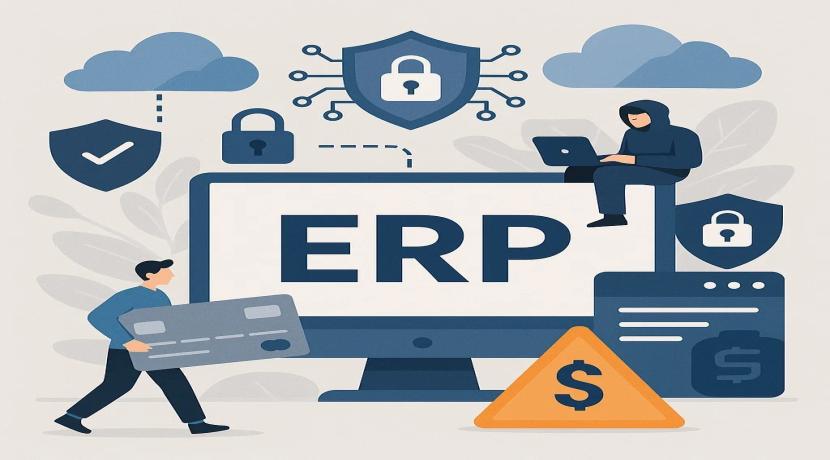
Mastering ERP Security: How Digital Risk Protection and Hybrid Cloud Management Prevent Expense Fraud in 2025
2025-Aug-22
In 2025, enterprise resource planning (ERP) systems are no longer just operational tools they’re the backbone of enterprise financial management, supply chain tracking, and compliance workflows. With sensitive financial data flowing across global operations, organizations face rising risks of expense reimbursement fraud and compliance gaps. Enter hybrid cloud management and digital risk protection services, transforming ERP security and ensuring resilient enterprise operations.
The Modern ERP Security Challenge
ERPs now handle enormous volumes of financial and operational data. While this growth enables smarter decision-making, it also exposes vulnerabilities. Common risks include:
- Unauthorized access to expense and reimbursement systems
- Fraudulent expense submissions
- Compliance violations in financial reconciliation
- Data exposure across multiple locations and remote teams
Without robust safeguards, these issues can cost enterprises millions annually.
Leveraging Hybrid Cloud for ERP Security
Hybrid cloud management provides the flexibility of cloud-based operations with the control of on-premise infrastructure. This hybrid approach ensures:
- Scalable, secure storage: Sensitive finance data can reside safely on private cloud environments while leveraging public cloud for analytics and reporting.
- Real-time access: Teams across geographies can access financial systems without latency, enhancing transparency and monitoring.
- Business continuity: Even during system failures or cyber events, ERP processes remain uninterrupted.
Enterprises adopting enterprise hybrid cloud strategies are better equipped to monitor transactions, detect anomalies, and enforce compliance standards consistently.
Digital Risk Protection Services: The First Line of Defense
Digital risk protection services complement hybrid cloud setups by:
- Monitoring for unusual activity in ERP systems
- Alerting on potential expense fraud or suspicious financial patterns
- Integrating directly with ERP tools to enforce role-based access controls
- Supporting compliance for audits and financial reconciliation
By embedding these services into the sales tech stack and other ERP workflows, organizations can prevent costly errors and malicious activities before they escalate.
Automating Financial Processes to Reduce Fraud
AI-powered define financial reconciliation and end-to-end AP automation tools allow enterprises to:
- Automate cross-checking of expense reports, invoices, and approvals
- Reduce manual intervention, lowering human error
- Detect discrepancies in real-time, flagging potential expense reimbursement fraud
- Ensure regulatory compliance across departments
Integrating automation with ERP systems creates a self-monitoring environment where security, accuracy, and accountability are baked into everyday workflows.
Frequently Asked Questions (FAQs)
Q1: What is the role of hybrid cloud management in ERP security?
Hybrid cloud management provides scalable, secure infrastructure for ERP systems, ensuring sensitive financial data is protected while maintaining accessibility and business continuity.
Q2: How do digital risk protection services prevent expense reimbursement fraud?
These services monitor for suspicious activity, enforce access controls, and alert finance teams in real-time, preventing fraudulent expense claims from impacting the organization.
Q3: Can financial reconciliation be automated in ERP systems?
Yes. Tools that define financial reconciliation processes and integrate with AP automation allow ERP systems to automatically verify expenses, invoices, and approvals, reducing manual effort and errors.
Q4: Why is combining hybrid cloud with ERP important for enterprises?
It enables secure, scalable, and flexible operations, allowing global teams to access financial data while mitigating risks associated with cyber threats and internal fraud.
Q5: What is the impact on overall business performance?
Secure ERP systems with hybrid cloud and risk protection reduce financial losses, enhance compliance, and improve operational efficiency, empowering enterprises to focus on growth rather than risk management.
The Business Value of Secure ERP Systems
Investing in hybrid cloud ERP with embedded digital risk protection services brings measurable benefits:
- Reduced losses from fraud and errors
- Streamlined financial reconciliation processes
- Enhanced audit readiness and compliance
- Greater confidence for executives and stakeholders
Enterprises that combine hybrid cloud connectivity with intelligent ERP security are not only protecting themselves they are enabling growth by freeing resources previously tied up in manual oversight and risk mitigation.